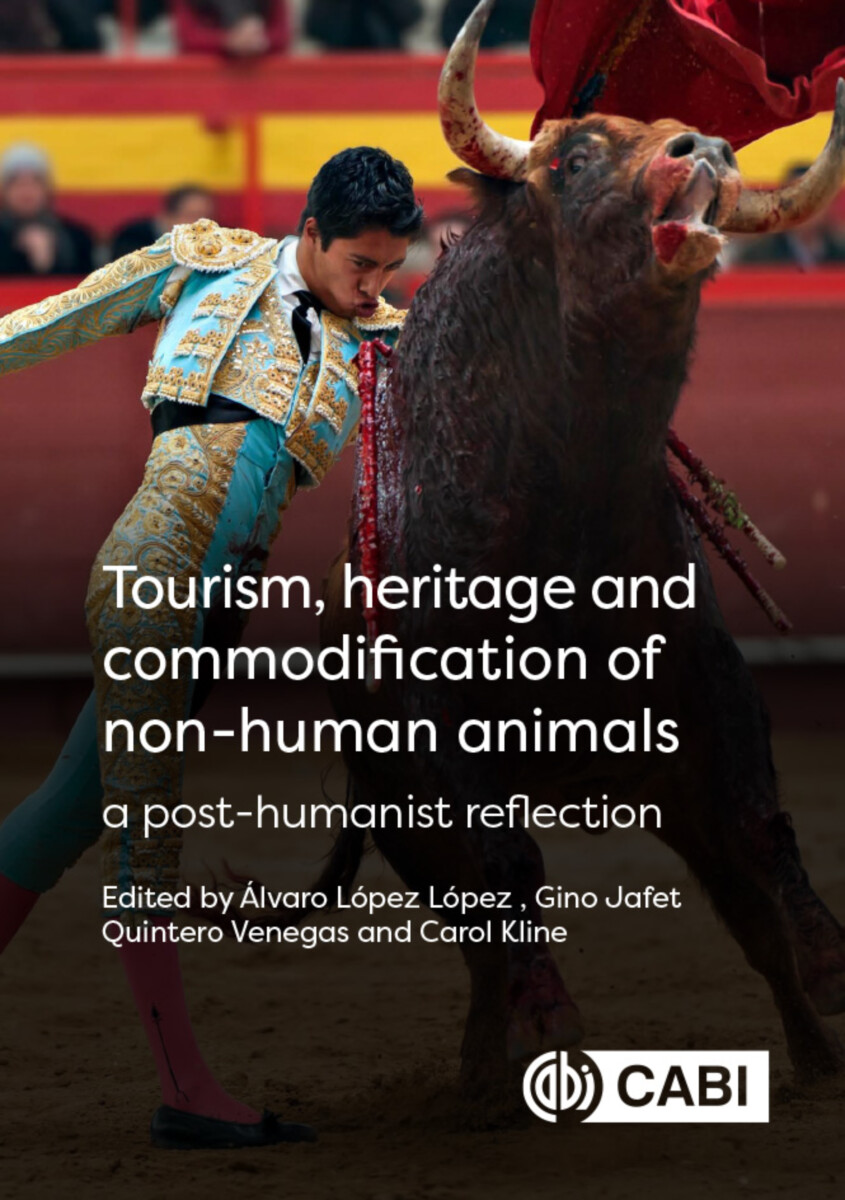Tourism, Heritage and Commodification of Non-Human Animals
A Post-Humanist Reflection
- Publisher
CABI - Published
19th December 2023 - ISBN 9781800623286
- Language English
- Pages 208 pp.
- Size 6" x 9"
Heritage is a social construction rooted in modern and contemporary societies. It is commonly a positive assessment of many elements of the physical and human environment (e.g. ecosystems and landscapes, monuments, customs, gender norms, religious practices, gastronomy, and livelihoods). Heritage and tourism are strongly related to each other in that heritage gives rise to tourist attractions and activities, and tourism enhances the designation of heritage sites.
Non-human animals (hereafter "animals") are present as implicit or explicit heritage elements through multiple tourist environments: animals may be themselves the heritage focus of tourist interest (visual arts, gastronomy, as charismatic and distinguished beings, as part of festivities or rituals), or it may be that animals are agents involved in heritage tourist environments such as working animals or in recreational activities.
A post-humanist perspective - the moral valuation of equality between humans and other animals - demands that both are sentient beings and self-aware of their pain and pleasure. Thus, the involvement of animals as heritage elements by themselves or as an element of tourist consumption in heritage sites implies their commodification and lack of agency. As such, these practices are usually unethical, since they threaten the animals' primary interests: not to suffer, not to feel pain and to be able to live their freedom.
This book contains chapters that reveal both the unethical interactions between humans and animals within heritage tourism, and those that show experiences in which efforts are made to minimize damage within the commercialization of animals involved as heritage themselves.
It will be of interest to postgraduate students, academics, NGOs and tourism planners.
Contributors
Acknowledgements
Part 1: Humanist Benefits and Animal Exploitation
1) Introduction. Muted Torment: Speciesism, Tourism and Animal Commodification
2) Heritage and Commodification of Non-human Animals in Tourism: A Posthumanist Reflection
3) The Legacy of Zoos? Moral Reasons against Considering Zoos as Heritage
4) Fill Your Cup: A Multi-species Exploration of Balinese Kopi Luwak Agrotourism
5) Animal Trade and Dark Tourism in Sonora Market
6) Jallikattu: Walking the Tightrope between Culture and Animal Welfare
7) Bullfights, Tourism and Intangible Cultural Heritage in Mexico: A Dissonant Heritage
8) Bullfighting at the San Marcos National Fair: Animal Cruelty behind Tourism and Heritage
Part 2: Navigating Animal–Human Relationships: Tension in Minimizing Damage
9) Restoring Relationships of Respect with Eagle Relatives: Tribal-led Eagle Aviary Tours in Oklahoma Indian Country
10) A Posthumanist View on Theming the Axolotl for a Pueblo Mágico
11) Feline Saviours: Nekonomics, Stray Agency and the Kawaiification of Heritage Tourism in Japan
12) The Heritage of the Cute: Commodifying Pandas in Urban and Rural China
13) Contested Boundaries: Towards a Posthumanist Political Ecology Approach to Recognize Human–Deer Relationship as an Intangible Cultural Heritage
14) Conclusion. Shifting Animal Abuse in Heritage Tourism to the Paradigm of Building Multispecies Communities
Álvaro López-López, PhD
Álvaro López-López has a PhD in Geography from Arts Faculty of the National Autonomous University of Mexico (UNAM). He is currently a senior researcher at the Institute of Geography, UNAM, and also a professor in the undergraduate and graduate programs in Geography at UNAM where he teaches "Space and Tourism." His basic line of research has been the "geography of tourism in Mexico," from which he has developed research projects about "sex tourism," "dark tourism," and the "intersection between the geography of tourism and the geography of animals" among others. He was the president of the Mexican Academy of Tourism Research.
Gino Jafet Quintero Venegas, PhD
Gino Jafet Quintero Venegas has a PhD in Geography from the National Autonomous University of Mexico (UNAM). Postdoctoral fellowship in the Bioethics University Program (UNAM) in zoo ethics. He is an academic fellow at Monash University and the University of Sydney, both in Australia. He is currently a full-time associate researcher at the Institute of Social Research (Instituto de Investigaciones Sociales) UNAM. He is also a professor of "Geography and Ethics" and "Animal Geography" in the bachelor degree in Geography at UNAM, and professor of "Ethics, Territory and Environment" in the postgraduate program of Geography, at UNAM. He is one of the coordinators of both the Permanent Seminar on Critical Studies in Tourism and the Permanent Seminar on Critical Animal Studies.
Carol Kline, PhD
Carol Kline is a Professor and the Director of the Hospitality and Tourism Management program at Appalachian State University. Her teaching and research interests have historically focused broadly on tourism sustainability, including topics such as foodie segmentation, craft beverages, agritourism, tourism entrepreneurship, and tourism in developing economies. However, she now gears her research solely on animals and she teaches a course called Animals, Tourism, & Sustainability. She is part of the Race, Ethnicity, and Social Equity in Tourism (RESET) initiative, which includes animals within the study of social equity. She is founder of Fanimal Inc., a non-profit that helps individuals find animal-focused careers.


